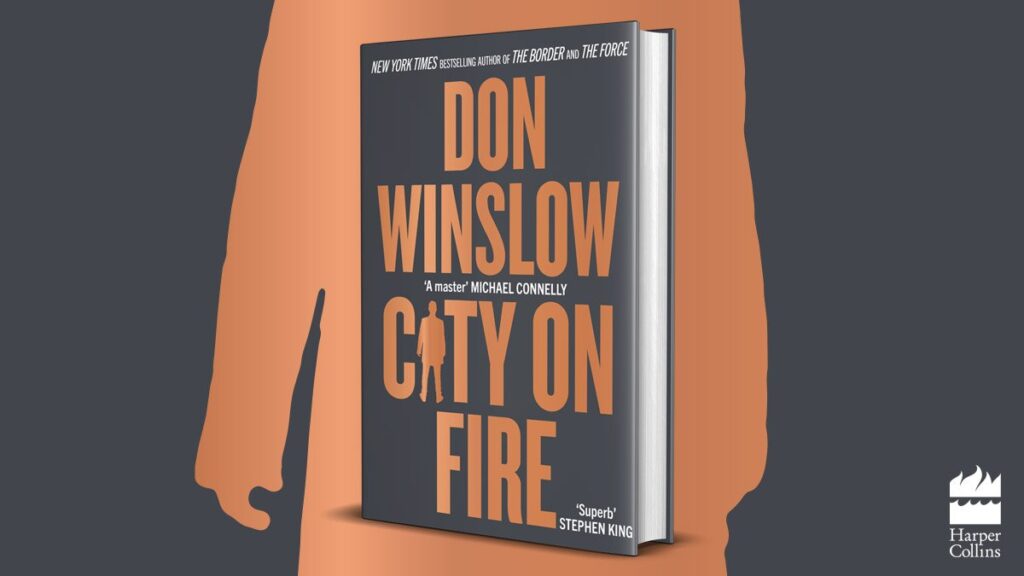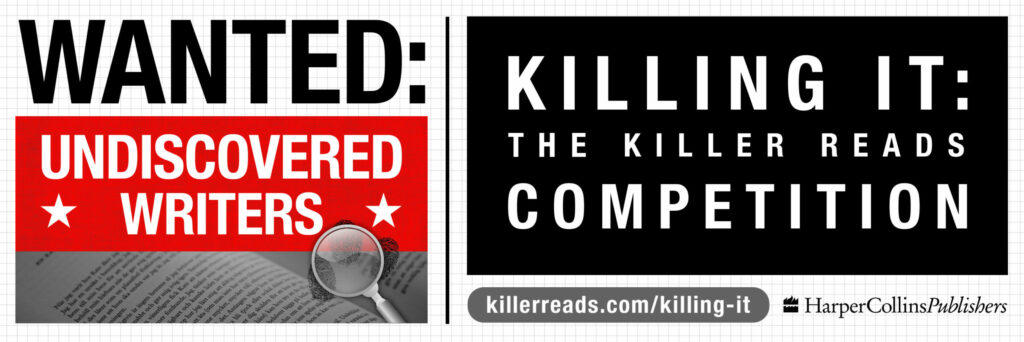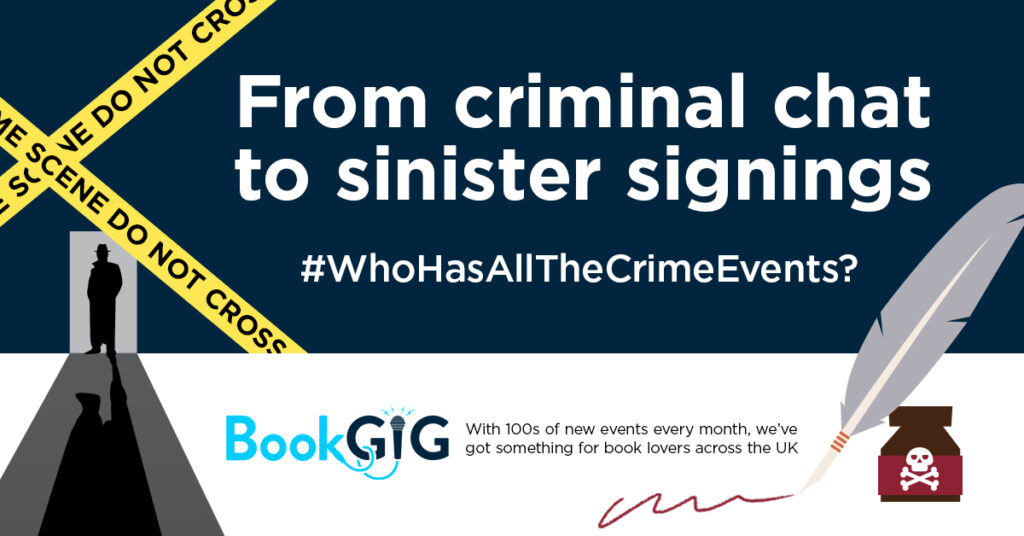We are really rather pleased over here at Killer Reads, that the fantastic Dean Kontz took some time out to answer a few of our questions for this exclusive Q&A;
Killer Reads: Your novels are famously page-turners, fast-paced to the last page, did your first book have this momentum or did you learn on the job how to create it?
Dean Koontz: I have a low boredom threshold, perhaps even lower than the boredom threshold of a Jack Russell Terrier, though in a moment of ennui, I would never resort to licking my nether parts. My boredom threshold is even lower than the threshold at which Donald Duck transforms from mellow fowl to squawking feathered fury. When I sit at the computer to write, I have to entertain myself. If the story doesn’t grip me emotionally and intellectually, I lose interest in writing it.
Pace is important to both the emotional effect of a story and to the degree of intellectual excitement it provides. Over the years, I’ve learned how to say more in fewer words, how to explore emotional and intellectual issues through action. I always strove for a fast-paced narrative. But it’s become increasingly important to me over time because I realized that the flow of a work of fiction is like the currents in a river: If the current is fast, the river sweeps along all manner of objects with it, but when the current is slow, the jetsam sinks to the bottom. Similarly, a fast-paced narrative can carry more metaphors, more themes, more meaning than a slow one. A swift pace can actually add depth to a story by so enthralling the reader that he or she doesn’t mind having to think about philosophical issues.
KR: Is there a difference in your approach to characters when writing a series of books, the Odd Thomas books and the Frankensteins, for instance, rather than writing standalone thrillers?
DK: I’m always using different approaches, whether in standalones or series books. The techniques depend instead on such things as whether the book is a first-person narrative–as are the Odd Thomas novels–whether the story allows a comic element, as do many but not all of my novels, and whether the themes deal with smaller issues of the human experience or also with greater questions of the meaning and purpose of life.
In the Frankenstein books, I hoped to create a different form of third-person, multiple-viewpoint narration. Each character or pair of characters has his or their own urgent story with its own momentum and suspense, with its unique voice, but all those stories are equally important facets of the overall story, which itself has an urgency; by keeping scenes tight, it’s possible to juggle all those balls in the air, cycling through the many stories so fast that the reader cannot forget any of them, and thereby the novel acquires a narrative and thematic complexity that makes it feel like a much longer book than it is.
Taking on new challenges, every time out of the gate, is one thing that makes writing so rewarding and keeps me engaged above my threshold of boredom. Another thing is the pretty blue color of the computer screen. I so love the pretty blue color of the computer screen that I can sit happily for hours, sometimes for days, just gazing into it, taking neither food nor a sip of water, enthralled, slowly dehydrating, until someone finds me in a half-mummified condition, and then it’s quick to the hospital again, with an IV drip in my arm. But the pretty blue computer screen will be there when I come home, and I–now fully hydrated–will eventually commune with it again.
KR: Most of your heroes come from ordinary occupations–a fry cook, a baker, a mason, a gardener, a bartender. Is this a form of positive discrimination?
DK: In the U.S., I find academics and those in many professions to have been shaped by an educational system that has suffocated them with ideology, to the extent that they share a hive mentality, have little sense of wonder, and suffer from an anorexic sense of humor. I have a few friends who are writers, a couple who are attorneys, a few who are physicians, but most of my friends are masons, cooks, chefs, real-estate agents, metalworkers, masons, cabinetmakers….
I find them to be fun, more mentally engaging because they have not bought into any ideological line or utopian theory, and in general much more in tune–and savvy about–real life. Understandably, my characters come from those same professions.
I also long ago realized that when I encounter a cabinetmaker who does exquisite work, he has the same drive for perfection that makes me do 20 and 30 drafts of each page of a novel. He or she shares my awareness that the world is a mysterious and beautiful place, that it could be more beautiful yet, and that each of us has a gift by the exploitation of which we might hope to add beauty to the world. In other words, the committed novelist and the committed mason are on the same path through the forest of life.
KR: Is your writing influenced in any way by your science fiction origins?
DK: Absolutely. In high school, through college, into my mid twenties, I read hundreds of science fiction novels. It was natural, then, to write science fiction when I launched a writing career. The total freedom of that genre allowed me to stretch my imagination, which has served me well in the genres I subsequently approached after leaving science fiction.
KR: Has your sense of humor ever gotten you into trouble in an interview?
DK: A reporter once came to my home to interview me, and he found that I fell short in those qualities of a celebrity that most interested him. I have remained married to my high-school sweetheart. I don’t do drugs. I am a homebody who loves his dog. He was frustrated that I didn’t answer the door wearing only body paint, that my tongue wasn’t tattooed, that I wasn’t surrounded by an entourage of heavily armed cokeheads dressed in black with sequined eyelids and pierced chins. He said plaintively, ‘Do you do anything colorful?’ So I said, ‘Well, some people think snake-handling is colorful until they watch me at it for five minutes, and then they realize there’s really no danger. The more poisonous the snake, the smaller its brain, therefore the easier it is to mesmerize, takes about ten seconds flat. Once you’ve got one in a trance, you can tie it in knots without angering it, you can make it hold its tail in its mouth and roll it like a wheel, and the snake won’t even hiss. I find it relaxing, but without any real danger, I wouldn’t say it’s a colorful pursuit.’ I pulled back my sleeve to reveal a healing red welt with two puncture wounds, which I had sustained in a small home-remodeling project. ‘Sometimes they bite, and that might be a colorful moment if I didn’t keep antivenin in the refrigerator. The gaboon viper and the levantine viper have a toxicity rating of six, which is as bad as it gets, but even then you have ten minutes to self-inject the antivenin, which you want to do for sure, because otherwise you vomit blood, collapse, and die within the hour. But snake-handling isn’t colorful, it’s really a form of meditation, and no one would say meditation is colorful. There’s nothing exciting about a Zen session.’ I had delivered this stream of nonsense in such a way that I assumed he knew I was joking, and I was disappointed that he didn’t at least smile as I ranted. Imagine my surprise when I finally stopped and, with keen interest, he said, ‘Will you handle some of these snakes for me now?’ Much earlier I should have realized that my interviewer had no sense of humor. When I told him I had been joking, that there were no snakes in the Koontz house, his glare was as venomous as any gaboon viper ever born. When his article appeared, no mention was made of snakes, but he did not paint me in a favorable light.
KR: From which countries outside the USA do you get the most interesting mail from readers.
DK: I get quite a lot of mail from England and Australia, and it’s always wonderfully polite and engaging, more formal and less familiar in its tone than mail from Americans, which is usually wonderful in its way, too. I sell well in France and Italy but get little mail from there. Germans also seldom write. Some mail comes in from Sweden, Norway, Denmark, Holland–and it’s notably buoyant in its tone, putting the lie to the image of gloomy Scandinavians and solemn Dutchmen. All the mail I get from Japan comes from lovely young women who write the sweetest letters and present them as little works of art, crafted and packaged like gifts; I don’t recall receiving a single letter from a man in Japan. I receive on average 10,000 to 15,000 letters a year from readers, though that number can soar when a book–FROM THE CORNER OF HIS EYE or ODD THOMAS–particularly strikes a chord with readers.
KR: Would you describe yourself as driven or highly motivated or hard working or all three?
DK: I would describe myself as joyfully obsessed. I believe that talent is an unearned gift in which I can take no pride. The pride, if any, comes from improving my craft and learning to polish a better shine on the talent. My obsession is with writing, not with having written, so I am happiest when the tale is in progress. I actually believe that talent comes with the obligation to explore it and to make the most of it, that using such a gift is a moral imperative, and when writing, I feel that I am exactly where I ought to be in the vertical of sacred order. God gave me the talent, and in using it, I feel in harmony with creation. It is hard work, but it is also always play, and more than play–redemption.
KR: Could the late Trixie and now Anna, your golden retrievers, help you to answer the previous question?
DK: Although she’s on the other side, Trixie is still writing, working on her fourth book, so I’ll turn this over to Anna, who happens to be lying beside my office chair: ‘I snooze. Dad writes. I play with squeaky plush toy. Dad writes. I run out office door, onto patio, chase birds. Dad writes. Finally I, who is Anna, sneak up on Dad, put cold nose under his hand, toss it off keyboard. Dad scolds me, returns to typing, I pull same trick again. And again. Put head on his lap, roll big soulful doggy eyes. Even Dad’s joyful obsession can’t withstand charm assault by golden retriever. Dad switches off computer. We go outside to play. He chases ball real good.’


